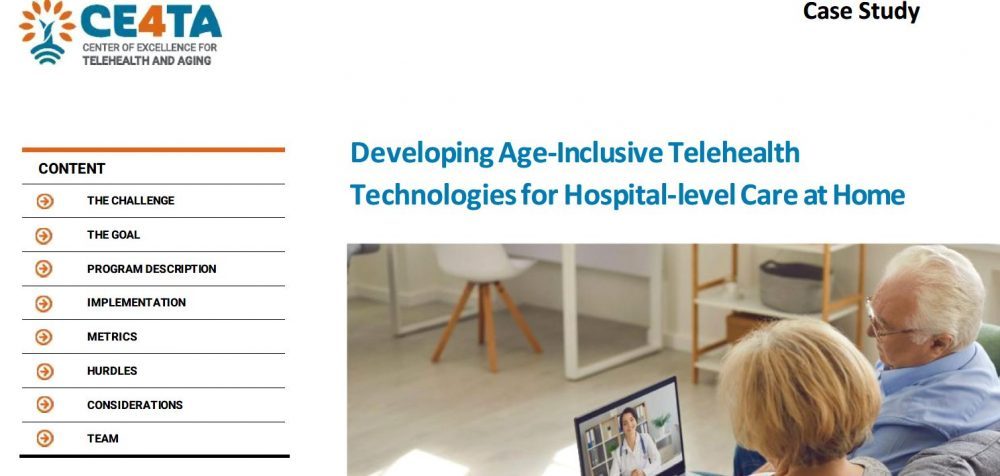This research article examines telemental health use at U.S. health centers, the authors observed notable variations linked to workforce composition, grant funding, and state policy environments. They emphasize that targeted policy efforts, infrastructure investments, and adequate reimbursement mechanisms are critical for ensuring equitable and sustained access to virtual mental health services, particularly among underserved communities.
This implementation guide provides healthcare providers and organizations with a comprehensive framework for delivering effective telebehavioral health services to older adults. Each behavioral health care model included offers practical examples of how to incorporate the Principles and Guidelines for Telehealth and Aging, ensuring the specific needs of older adults are met.
The equitable and accessible care implementation strategies offer real-world examples of how healthcare providers and organizations can apply the Principle 2 Telehealth and Aging Guidelines across various clinical settings.

Case study highlighting how Medically Home’s technology and operational support are assisting health systems in delivering hospital-level care at home while addressing the unique needs of older adults.
Manuscript detailing how to create a workforce model that can be effective in improving oral health of adults 69 to 100 who live in a long-term care facility.
A review showing evidence on use of digital health technology with older adults during COVID-19 pandemic.
Making changes to the way care is delivered often requires a champion who will lead the way. Here are some tips for engaging a champion....
PDSA Planning & Progress Form...
A paper discussing the findings from the CCARRE program whose aim is to provide care for older adults with cognitive impairment in New York City.
A study addressing the potential barrier of digital literacy for geriatric patients accessing telehealth services. In the study, personalized technology support was provided to patients in the Geriatric Psychiatry division.
A qualitative study aimed to explore the benefits of telehealth for primary care physicians and their patients through semi-structured interviews.
Report following the case study of a large urban home-based primary care program that addressed barriers to video telehealth by disseminating cellular-enabled tablets.
